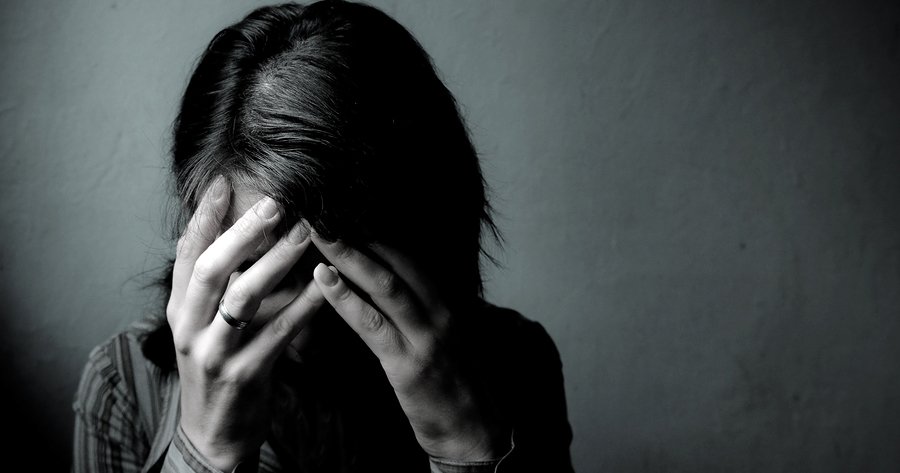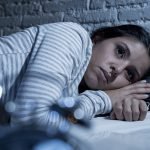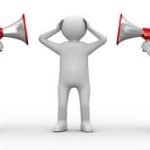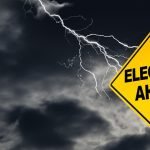For years, stress and/or depression have been suspected of increasing the risk of contracting numerous infectious diseases. In addition, there is mounting statistical evidence that increased levels of stress and depression also correlate with an increased incidence of cancer. And finally, there is strong statistical evidence linking stress and depression with death itself.
Stress
Stress is your body’s response to all of the demands made upon it. Your body responds to all stresses, both positive and negative, by trying to get back to normal.
- 43% of all adults suffer adverse health effects due to stress.1 American Psychological Association. “How Does Stress Affect Us?” Psych Central. (Accessed 14 July 2017.) http://psychcentral.com/lib/how-does-stress-affect-us/
- 75-90% of all visits to primary care physicians are for stress-related complaints or disorders. 2 Psych Central
When a stressor is perceived, the hypothalamus triggers your adrenal glands to release corticosteroids to increase metabolism to provide an immediate increase in energy. Simultaneously, your pituitary releases a hormone called ACTH, which causes your adrenal glands to release epinephrine and norepinephrine, which work to prolong your body’s fight-or-flight response.
If a stressful situation goes on for too long without any relief, you may feel tired, irritable, depressed, or anxious. You may have trouble sleeping or eating, or you might experience diseases and disorders, such as: headaches, insomnia, high blood pressure, heart problems, kidney diseases, colds, ulcers, asthma, heart attack, and/or stroke.
- Stress has been linked to all the leading causes of death, including heart disease, cancer, lung ailments, accidents, cirrhosis, and suicide.3 Psych Central
- Stress is said to be responsible for more than half of the 550,000,000 workdays lost annually because of absenteeism.4 Workplace Stress. America Institute of Stress. 14 May 2017. (Accessed 14 July 2017.) http://stress.org/workplace-stress/
- Stress costs American industry more than $300 billion annually.5 Steve Nguyen. “Cost of Stress on the U.S. Economy Is $300 Billion? Says Who?” Workplace Psychology. 2016 July 4. (Accessed 14 July 2017.) http://workplacepsychology.net/2016/07/04/cost-of-stress-on-the-u-s-economy-is-300-billion-says-who/
Eventually, your body’s energy reserves are exhausted; it breaks down. Recent research has confirmed the role of stress in cardiovascular disease, cancer, gastrointestinal, skin, neurologic and emotional disorders, and a host of disorders linked to immune system disturbances and autoimmune diseases, ranging from the common cold and herpes, to arthritis, cancer, and AIDS.
Depression
Depression works on your body in different ways than stress, but the results are the same.
Your body is a product of your thoughts. The cells of your body have receptor sites for the various neurohormones you produce. Your immune cells, to use just one example, have receptor sites for each of those hormones. When you are happy, you produce a set of neurohormones that are picked up by the cells of your immune system. These particular neurohormones tell your immune system to jack up — which it does. In other words, happy thoughts improve your health. However, when you are depressed, the opposite happens. The neurohormones your body produces literally shut down your immune system. In effect, negative thoughts can actually kill you.
- A group of medical researchers in Montreal tracked 222 post heart attack victims, both men and women. The researchers found that those who were depressed (who felt sad, hopeless, and listless) were more likely to die of another heart attack within 18 months of their first heart attack than those who were not — 10 times more likely, in fact.6 Frasure-Smith, N., F. Lespérance, M. Talajic. “Depression and 18-Month Prognosis After Myocardial Infarction.” Circulation 91 (1995): 999–1005. http://circ.ahajournals.org/content/91/4/999
The bottom line, as Dr. John Christopher used to say, is that “Most people need an enema between the ears.”
Prozac
The major pharmaceutical companies, as usual, have developed a set of drugs called selective serotonin reuptake inhibitors (SSRIs) to “manage the symptoms” associated with stress and depression. You might know them as Cymbalta, Prozac, Zoloft, Paxil, Luvox, Celexa, Effexor, Wellbutrin, and Serzone.
Thanks to millions and millions of dollars in promotion, some misguided books that jumped on the bandwagon, and our own marvelous tendency to believe in magic bullets, we have become a “Prozac Nation.”
But not without cost.
- SSRIs cause mania and delusions of grandeur in one out of every 25 children taking the drugs, as cited in the warning label for Luvox in the Physicians’ Desk Reference.
- Eli Lilly, the manufacturer of Prozac, had strong indications it caused violence as early as the 1980s, but suppressed the information until it was leaked to the British Medical Journal.7 Peter R. Breggin, M.D. “Examination of Eli Lilly’s Contentions that the BMJ Prozac Documents were Never Missing and Have No Significance.” AHRP. January 12, 2005. (Accessed 14 July 2017.) http://ahrp.org/examination-of-eli-lillys-contentions-that-the-bmj-prozac-documents-were-never-missing-and-have-no-significance/
- In 70% of all murder/suicides involving women and children, the women were on SSRIs.
- Specialized testing during the autopsy of Eric Harris, one of the Colombine shooters, showed “therapeutic” levels of Luvox in his blood.8 Peter R. Breggin, M.D. “Eric Harris was taking Luvox (a Prozac-like drug) at the time of the Littleton murders.” Psych Rights. April 30, 1999. (Accessed 14 July 2017.) http://psychrights.org/Stories/EricHarris.htm In addition, he was also taking cough syrup. The interaction between cough medications containing dextromethorphan (found in Robitussin, for example) and the SSRIs can greatly increase the possibility of a toxic reaction known as serotonin syndrome leading to PCP (Angel Dust) reactions. In effect, Eric Harris was unknowingly on the equivalent of Angel Dust. That explains a lot.
- Kip Kinkle, who shot his parents and then shot his classmates in Oregon, was on Prozac.9 Frontline. Kip Kinkle’s life and the events leading up to the horror of May 20-21, 1998. PBS SOCAL. (Accessed 14 July 2017.) http://www.pbs.org/wgbh/pages/frontline/shows/kinkel/kip/cron.html
- Brynn Hartmann, the actor Phil Hartmann’s wife, was on Zoloft when she shot her husband and committed suicide.10 “Coroner: Hartman’s wife on drugs, drunk.” CNN. June 8, 1998. (Accessed 14 July 2017.) http://edition.cnn.com/SHOWBIZ/TV/9806/08/brynn.hartman.drugged/
- In March of 1998, Matthew Beck went on a bloody rampage at his office, the Connecticut Lottery Corp. headquarters, killing four senior lottery officials before committing suicide. He was on Luvox.11 Ann Blake-Tracy. “The Aftermath of Antidepressants.” International Coalition for Drug Awareness. May 6, 2000. (Accessed 14 July 2017.) http://www.drugawareness.org/the-aftermath/
- Many children under the age of 3 have already been given Prozac.
- Flavored Prozac is now available–just for children.12 http://www.walgreens.com/images/IN2163/favorable_flavors.pdf
Why do we get depressed in the first place?
Depression is the body’s way of forcing us to recognize that something is wrong. For a simplified explanation, if you set your hand on a hot burner, it burns the skin and sends painful signals to the brain, reminding us to remove our hand. Similarly, when we suffer a deeply emotional trauma or situation, the brain tells us to fix the problem and sends your brain “alerts” through a series of emotion reactions, one being depression. If the alerts continue, one can fall deeper into a depressed state until action is taken to prevent further emotional trauma.
It seems, however, that today’s psychiatric community is too “impatient” to encourage us to go through this process naturally. According to health experts, they now define “major depression” as someone having “the blues” for more than two weeks. Right!! If anyone has had a death in the family, a major illness, a mid-sized financial set-back, or an emotional break-up — which includes the entire population — then according to health experts, all of us should be on antidepressant drugs at some point in our lives. (Geez, that should be good for sales.) The bottom line is that getting over a major life-altering situation in just two weeks is the exception rather than the rule.
Hey, if any of you are on antidepressants, or were at some time, it’s not hard to understand why. Doctors and the mass media scare us with their statements such as “depression is associated with abnormal functioning of the brain.” We are then bombarded with all the details about the deficient neurotransmitters in the brain and our dysfunctional synaptic cleft. Ahh! “Sounds like brain damage. Sure, give me some pills…quickly!” Wait a minute. They forgot to explain that we still have no conclusive evidence as to why people have the chemical imbalances in the first place. Did our brain just suddenly change or were there outside circumstances that caused it? Did our thoughts, reactions, and emotions cause the imbalance? Were nutritional factors involved? Did we suddenly experience a major hormonal change such as PMS or Post Partum Depression? If so, nine times out of ten there are other remedies available besides drugs — remedies that do not share the devastating side effects associated with those drugs.
Instead of automatically popping a pill when we are sad, perhaps we should find ways to correct the underlying problem in our bodies so it can heal itself. It may take a true leap of faith, especially when the mind wants to focus on the negative, but the success after the fight of making ourselves content might be worth it. As some say, being happy is a choice! The more you work at it, the better you get.
Let me state clearly that this does not mean we should look at any problem as insignificant or that ignoring a feeling of sadness, confusion, exhaustion, or lack of interest in daily activities is going to make the feelings go away. Actually, ignoring depression could simply exacerbate the problem. An emotional injury is like a physical injury: it takes time and attention to heal. But there are alternatives to pharmaceutical drugs–more natural remedies to help our bodies heal. These include dietary modifications, daily exercise, supportive treatment with vitamins and minerals, and selective supplementation. And make no mistake, natural does not necessarily mean weaker. Studies have shown that exercise can actually beat drugs when it comes to dealing with depression, anxiety, and a variety of other mood disorders.
Vitamin and Mineral Therapy For Depression
Vitamin and mineral deficiencies can cause depression and correcting these deficiencies is often a safe, fast, and inexpensive way to relieving depression. Note: alcohol, smoking, stress, and excess sugar accelerate the depletion of many key antidepressive vitamins and minerals from the body, as does depression itself. Isn’t that a kick in the head: depression begets depression? Deficiencies in any of the following vitamins and minerals can contribute significantly to depression:
- Vitamin B6
- Folic acid
- Vitamin B12
- Vitamin C
- Magnesium
- Calcium
- Trace minerals
Amino Acids For Depression
Supplementing with amino acids is also a way to help relieve depression. These include:
- SAMe. S-Adenosyl-L-Methionine (SAMe) is a naturally occurring amino acid found in every cell of the body. It has a wide range of benefits including protecting the liver and cardiovascular system. In addition, it has antidepressant action equal to and faster than FDA-approved drugs, and is essential for the synthesis of melatonin. It also assists with sleep disorders, particularly those which are induced by the side effects of pharmaceutical drugs. (Note: SAMe may be counterproductive with bipolar disorder.)
- Phenylalanine. Phenylalanine is an amino acid that is used by the body to make the neurotransmitter (chemical messenger) norepinephrine. Norepinephrine is believed to be in short supply in the brains of people who are depressed. There is some evidence that taking in extra phenylalanine allows the brain to make more norepinephrine. There are several studies that indicate that phenylalanine may work as well as antidepressant drugs. Although the studies are inconclusive, the anecdotal evidence is strong, and there are virtually no known side effects, so it’s worth trying.
- Theanine. Anxiety is a close cousin to depression, and the two often go hand in hand. Many people report that L-theanine works as well as prescription anti-anxiety medications, but L-theanine is not addictive or habit-forming.
- 5-HTP. 5-hydroxytryptophan (5-HTP) is an amino acid that occurs naturally in the body and is the final step in the production of the neurotransmitter serotonin. 5-HTP is special in that it can cross the blood brain barrier. It is extracted from the seeds of Griffonia simplicifolia, an African tree that is grown mostly in Ghana and the Ivory Coast. The extraction process uses alcohol and produces an oily solid. The oily extract is then purified into a dry solid. 5-HTP can also be made synthetically in the laboratory. The final product is the same as the one made by the body. 5-HTP has gained huge popularity in the treatment of insomnia, depression and obesity (among other uses). Today, 5-hydroxytrptophan is considered a safe and effective treatment for these conditions.
Herbal Remedies For Depression
For the vast majority of people bothered by stress or depression, a well designed herbal formula made from high quality herbs can prove remarkably effective. Look for an herbal formula that contains herbs such as:
- St. John’s wort (Hypericum perforatum) as a standardized extract and is licensed in Germany and other European countries as a treatment for mild to moderate depression, anxiety and sleep disorders. Sometimes called “Nature’s Prozac,” St. John’s wort helps relieve stress, anxiety, and tension. In Germany, it is the most popular antidepressant, outselling Prozac 3-1.More than 20 clinical studies have been completed using several different St. John’s wort extracts. Most have shown antidepressant action equal to standard prescription antidepressant drugs, without the side effects. St. John’s Wart is now being studied in the first U.S. government-sanctioned clinical trial, a three-year study sponsored by the Center for Complementary and Alternative Medicine, based in Washington, D.C.
Probably the greatest testament to its efficacy is how it has been attacked in the press as “dangerous.” The case against it is that it seems to heighten the dangers associated with MAO1 inhibitors, if you are currently using such drugs. But this is a marvelous piece of propaganda double-speak that transfers the danger from the antidepressants, where they belong, to St. John’s wort, which merely brings those dangers to the fore. George Orwell would be proud!
- Ginkgo (Ginkgo biloba) extract is currently being used as an alternative for elderly patients with depression resistance to standard drug therapy. This is because depression is often an early sign of cognitive decline and cerebrovascular insufficiency in elderly patients. In one study, 40 patients, ages 51 to 78, with a diagnosis of resistant depression, were randomized to receive either Ginkgo biloba extract or placebo for eight weeks. Patients in the ginkgo group received 80 mg of the extract three times daily. During the study, patients remained on their antidepressant drugs. In patients treated with ginkgo, there was a decline in the median Hamilton Depression Scale scores from 14 to 7 after four weeks. This score further reduced to 4.5 after eight weeks. There was a one-point reduction in the placebo group after eight weeks. In addition to the significant improvement in symptoms of depression for the ginkgo group, there was also a noted improvement in overall cognitive function. No side effects were reported.
- Ashwagandha induces a strong physical sensation of well-being and stimulates the body’s pleasure centers to just feel good. Several clinical studies show that it is
- Cognitive function enhancer.13 Pingali U, Pilli R, Fatima N. “Effect of standardized aqueous extract of Withania somnifera on tests of cognitive and psychomotor performance in healthy human participants.” Pharmacognosy Res. 2014 Jan;6(1):12-8. http://www.ncbi.nlm.nih.gov/pmc/articles/PMC3897003/ , 14 Ahmed ME, et al. Attenuation of oxidative damage-associated cognitive decline by Withania somnifera in rat model of streptozotocin-induced cognitive impairment. Protoplasma. (2013). http://www.ncbi.nlm.nih.gov/pubmed/23340606
- Stress,15 Archana R, Namasivayam A. “Antistressor effect of Withania somnifera.” J Ethnopharmacol. 1999 Jan;64(1):91-3. http://www.ncbi.nlm.nih.gov/pubmed/10075127 anxiety,16 An Alternative Treatment for Anxiety: A Systematic Review of Human Trial Results Reported for the Ayurvedic Herb Ashwagandha (Withania somnifera). J Altern Complement Med. 2014 Nov 18. http://online.liebertpub.com/doi/pdf/10.1089/acm.2014.0177 , 17 Chandrasekhar K1, Kapoor J, Anishetty S. “A prospective, randomized double-blind, placebo-controlled study of safety and efficacy of a high-concentration full-spectrum extract of ashwagandha root in reducing stress and anxiety in adults.” Indian J Psychol Med. 2012 Jul;34(3):255-62. http://www.ncbi.nlm.nih.gov/pmc/articles/PMC3573577/ and depression reducer.18 Maity T, Adhikari A, Bhattacharya K, Biswas S, et al. “A study on evalution of antidepressant effect of imipramine adjunct with Aswagandha and Bramhi.” Nepal Med Coll J. 2011 Dec;13(4):250-3. http://www.ncbi.nlm.nih.gov/pubmed/23016473
- Valerian root. For centuries, Valerian has been used to treat nervous tension and panic attacks. A wonderful herb, Valerian is calming and quieting to the nervous system.
- Kava kava is the herb of choice to relax the body, relieve stress, to combat mild to moderate anxiety, and for relief from headache and back pain. Kava is now recognized by many doctors as an alternative to drugs like Xanax and Valium. (And, as might be expected for something that works so well, Kava kava is under false attack.)
- Lobelia is an extremely powerful anti-spasmodic and a sedative. It helps improve breathing dramatically by dilating the bronchial tubes — great for asthmatics.
- Passionflower is remarkably effective as a sedative to calm nerves that get on edge.
- Black Cohosh. First used by the American Indians, Black Cohosh works to soothe the body by reducing the rapidity of the pulse. Black Cohosh also works internally to help soothe any nervous disease or spasm.
- Skullcap, Hops, and Catnip. Three herbs that have a long history as marvelously effective herbal tranquilizers, sedatives, and sleep aids.
- Mulungu. Researchers have validated the traditional use of Mulungu for anxiety and stress, where it was shown to alter anxiety-related responses.
Hormonal Imbalance and Depression
And let’s not forget about hormones.
Progesterone
This is particularly important since women experience clinical depression twice as often as men. Over the years I have been recommending progesterone crème to women, it has picked up the nickname from many of them: “The Happy Crème.” Any time progesterone levels drop such as during the monthly cycle, immediately after giving birth, or all the time if you are in a state of estrogen dominance, depression is a likely result. Using a good progesterone crème can provide an almost instant turnaround in attitude.
And while we’re on the subject, let’s talk about post partum depression. It’s real. During the weeks leading up to birth, progesterone levels have soared to levels 10-20 times normal. No wonder women seem to glow during pregnancy. But immediately after birth, progesterone levels plunge to almost zero. No wonder so many women experience extreme, even psychotic levels of depression. Simple supplementation with progesterone crème will resolve the depression over 90% of the time. In fact, any doctor who recommends antidepressants for post partum depression without trying progesterone crème first, should be named as an unindicted co-conspirator since they truly share the blame for any psychotic incidents that may result.
Testosterone
A growing body of evidence suggests that testosterone levels drop as much as 40% in men between their early 40s and early 70s. And for 10 to 15 percent of all men, those levels will dip below normal even as early as their 30s if there is stress, depression, personal life changes or medications. This in turn causes a decrease, not only in sexual desire and performance, but also in the competitive drive to succeed and accomplish in life — which is frequently experienced as depression. In women, excessive estrogen in the body causes a reduction in testosterone levels, which leads to a similar decline in sexual desire and performance and a similar reduction in “life drive.” Again, frequently experienced as depression.
Conclusion
In conclusion, depression can be common, but should not be taken lightly. A good, healthy program of daily exercise (which stimulates endorphins), low sugar foods, replacing depleted vitamins and minerals, and proper supplementation can go a long way to helping us feel better. And, it is not a bad idea to tell friends and family who have kids on antidepressants that exercise, simple dietary changes, and supplementation may be all that’s needed. Lastly, the mind is a powerful tool, and for those who are going through hard times, and if you haven’t already done so, you might want to read Chapter 15 of Lessons from the Miracle Doctors (you can download a free copy at www.jonbarron.org/detox/book-free-lessons-miracle-doctors) to see how you can reprogram the mind so that it more positively affects your body. And no matter what happens, remember: bad times eventually pass!
And yes, if nothing else helps, pharmaceutical antidepressants are certainly an option. Just remember: they may not work as well as promised; they come with a host of side effects; and some of them are deadly.
(Updated 14 July 2017)
Still interested in more information on stress and depression? Review the following Newsletters:
- Relaxed, Alert, and Feeling Good
- What No One Wants to Hear
- Depressed by Antidepressants
- Antidepressants Revisited
References
| ↑1 | American Psychological Association. “How Does Stress Affect Us?” Psych Central. (Accessed 14 July 2017.) http://psychcentral.com/lib/how-does-stress-affect-us/ |
|---|---|
| ↑2, ↑3 | Psych Central |
| ↑4 | Workplace Stress. America Institute of Stress. 14 May 2017. (Accessed 14 July 2017.) http://stress.org/workplace-stress/ |
| ↑5 | Steve Nguyen. “Cost of Stress on the U.S. Economy Is $300 Billion? Says Who?” Workplace Psychology. 2016 July 4. (Accessed 14 July 2017.) http://workplacepsychology.net/2016/07/04/cost-of-stress-on-the-u-s-economy-is-300-billion-says-who/ |
| ↑6 | Frasure-Smith, N., F. Lespérance, M. Talajic. “Depression and 18-Month Prognosis After Myocardial Infarction.” Circulation 91 (1995): 999–1005. http://circ.ahajournals.org/content/91/4/999 |
| ↑7 | Peter R. Breggin, M.D. “Examination of Eli Lilly’s Contentions that the BMJ Prozac Documents were Never Missing and Have No Significance.” AHRP. January 12, 2005. (Accessed 14 July 2017.) http://ahrp.org/examination-of-eli-lillys-contentions-that-the-bmj-prozac-documents-were-never-missing-and-have-no-significance/ |
| ↑8 | Peter R. Breggin, M.D. “Eric Harris was taking Luvox (a Prozac-like drug) at the time of the Littleton murders.” Psych Rights. April 30, 1999. (Accessed 14 July 2017.) http://psychrights.org/Stories/EricHarris.htm |
| ↑9 | Frontline. Kip Kinkle’s life and the events leading up to the horror of May 20-21, 1998. PBS SOCAL. (Accessed 14 July 2017.) http://www.pbs.org/wgbh/pages/frontline/shows/kinkel/kip/cron.html |
| ↑10 | “Coroner: Hartman’s wife on drugs, drunk.” CNN. June 8, 1998. (Accessed 14 July 2017.) http://edition.cnn.com/SHOWBIZ/TV/9806/08/brynn.hartman.drugged/ |
| ↑11 | Ann Blake-Tracy. “The Aftermath of Antidepressants.” International Coalition for Drug Awareness. May 6, 2000. (Accessed 14 July 2017.) http://www.drugawareness.org/the-aftermath/ |
| ↑12 | http://www.walgreens.com/images/IN2163/favorable_flavors.pdf |
| ↑13 | Pingali U, Pilli R, Fatima N. “Effect of standardized aqueous extract of Withania somnifera on tests of cognitive and psychomotor performance in healthy human participants.” Pharmacognosy Res. 2014 Jan;6(1):12-8. http://www.ncbi.nlm.nih.gov/pmc/articles/PMC3897003/ |
| ↑14 | Ahmed ME, et al. Attenuation of oxidative damage-associated cognitive decline by Withania somnifera in rat model of streptozotocin-induced cognitive impairment. Protoplasma. (2013). http://www.ncbi.nlm.nih.gov/pubmed/23340606 |
| ↑15 | Archana R, Namasivayam A. “Antistressor effect of Withania somnifera.” J Ethnopharmacol. 1999 Jan;64(1):91-3. http://www.ncbi.nlm.nih.gov/pubmed/10075127 |
| ↑16 | An Alternative Treatment for Anxiety: A Systematic Review of Human Trial Results Reported for the Ayurvedic Herb Ashwagandha (Withania somnifera). J Altern Complement Med. 2014 Nov 18. http://online.liebertpub.com/doi/pdf/10.1089/acm.2014.0177 |
| ↑17 | Chandrasekhar K1, Kapoor J, Anishetty S. “A prospective, randomized double-blind, placebo-controlled study of safety and efficacy of a high-concentration full-spectrum extract of ashwagandha root in reducing stress and anxiety in adults.” Indian J Psychol Med. 2012 Jul;34(3):255-62. http://www.ncbi.nlm.nih.gov/pmc/articles/PMC3573577/ |
| ↑18 | Maity T, Adhikari A, Bhattacharya K, Biswas S, et al. “A study on evalution of antidepressant effect of imipramine adjunct with Aswagandha and Bramhi.” Nepal Med Coll J. 2011 Dec;13(4):250-3. http://www.ncbi.nlm.nih.gov/pubmed/23016473 |












Stress Reduction
How do I order the Stress Reduction found in your products? I do not see a place to click on Baseline Nutritionals…….. Dennis
Hi Dennis,
Baseline
Hi Dennis, Baseline Nutritionals does not sell this product, but Jon likes to get the information out there on what you can take to help those in need. You can find most of these ingredients at your local health food store. Hope that helps, Sandy
My question:
I seek a natural
My question:
I seek a natural tranquilizer … water well soluble … the molecule of which contains Sulfur atom(s).
It becomes a chicken and egg
It becomes a chicken and egg situation. It’s good that stress is being acknowledged in the development of medical conditions.
Great information, being in
Great information, being in stress is really painful and this type of solution is needed to know to come out of this stressful situation.
Hi sheila here I dont know if
Hi sheila here I dont know if I can take any of those tabs I am on a lot of meds would they be safe I would love to get better help
Great share. Will definitely
Great share. Will definitely highlight these for my followers.